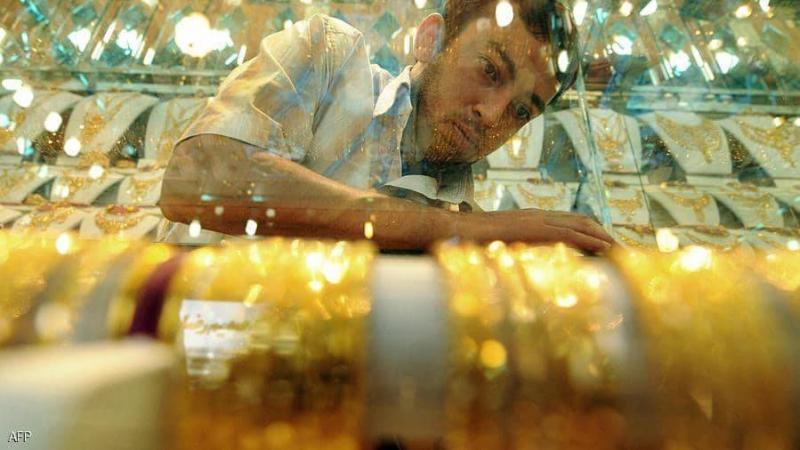As various regions and public properties in Afghanistan enter a state of chaos due to the political and security changes with the Taliban's takeover, traders and experts in jewelry and rare pieces have noted large quantities of Afghan jewelry reaching the Iranian black market. The precious items arriving from across Afghanistan to Iran, the western neighbor, include personal belongings sold by affluent Afghan families to avoid theft during the chaos or to exchange them for goods and services, such as gaining a chance to flee. Additionally, there are public jewels, such as medals, honors, and precious gifts that have been awarded to institutions and political figures in the country over the past two decades, previously owned by ministries and public departments.
Ayoub Nazari, a jewelry trader in the old and famous market of Mashhad, Iran, near the Afghan border, spoke to Sky News Arabia about the nature of the transactions currently occurring regarding smuggled Afghan jewelry into Iran.
Nazari stated, "There are two types of Afghan jewelry that can be seen in Iranian markets: the first is gold and modern jewelry that comes in large quantities sold without the global market price by about 20 percent. It is evident that many Afghan families arriving in Iran carried only their gold possessions, accepting this percentage of loss so as not to face the traditional scrutiny imposed by Iranian security on gold sellers to verify the source of the jewelry being sold."
He continued: "The second type is traditional jewelry that Afghanistan has been famous for thousands of years, which we call in Iran 'Tilatebi jewelry.' This jewelry has been owned by Afghan feudal and aristocratic families for centuries and has been bought and smuggled out of the country during political changes accompanied by security chaos. This jewelry is highly valuable when considering the distinguished social standing of its owner."
"It is difficult to transfer this jewelry to the European continent, a market eager to acquire it, as it is somewhat considered antiquities. However, Afghan jewelry is currently widespread in Iranian markets, yet there is significant secrecy surrounding it for fear of being confiscated by the authorities," according to Nazari.
Offers of Afghan jewelry have proliferated on social media in Iran, with many unidentified individuals posting pictures of the items. However, followers believe that these advertisements are either attempts at fraudulent fishing or maneuvers from Iranian security to uncover networks of traders operating in this sector.
The Iranian site "Heritage Voice" reported in detail about one of the shipments of Afghan jewelry that entered Iranian territory and reached Mazandaran a month before Kabul fell into the hands of the Taliban, where public institutions, including museums, were subjected to organized looting. The site mentioned that "the shipment included gold necklaces and belts, a large number of medals, and rings set with gems." It noted that an Iranian trader purchased the shipment for over a quarter million dollars and would sell it at a higher price to foreign traders who have started coming to Iran to compete for it.
Since the late 1970s, Afghanistan has gained fame as a hub for traditional historical jewelry after the discovery of tens of thousands of jewel pieces in ancient Persian royal tombs in the northern part of the country. These historical jewels have spread in global markets in succession, coinciding with the ongoing chaos that has plagued Afghanistan and the government's failure to control networks of looting and smuggling, many of whose members were leaders in armed groups during years of violence and war.
Three months prior to the fall of the country to the Taliban, the Afghan Ministry of Culture in the previous government warned of the chaos engulfing public properties, especially museums, financial funds, and archaeological sites, which began to witness unofficial excavations. The Taliban had previously stated in an official statement that "the smuggling of historical antiquities is prohibited in the country and that it will take legal action against those involved in the smuggling market." Nevertheless, the movement remains unable to fully protect historical sites in Afghanistan amidst considerable doubts regarding the partnership of senior Taliban leaders with trade and smuggling leaders.




